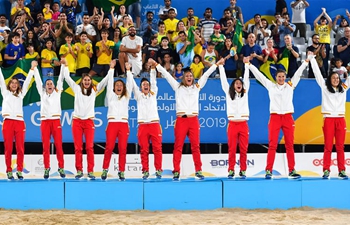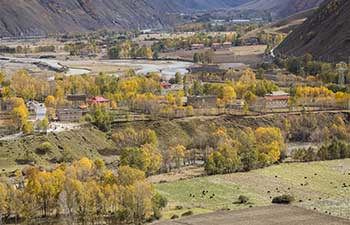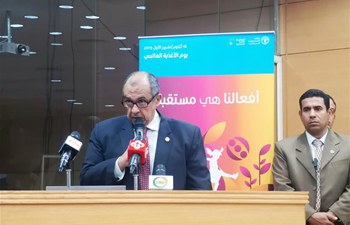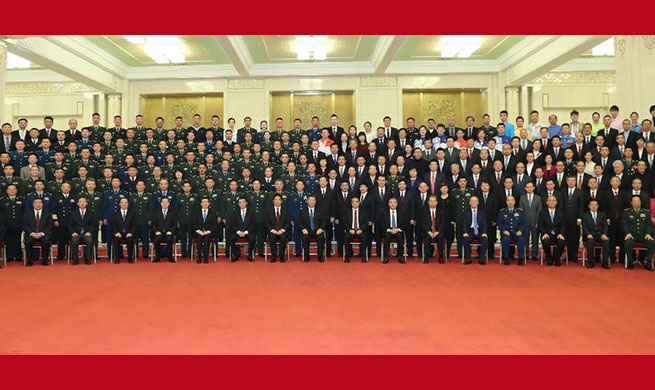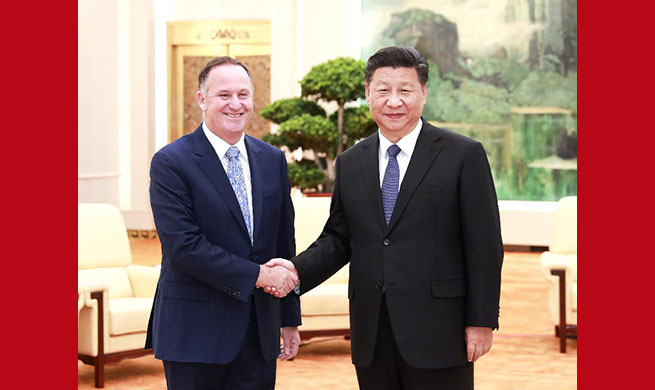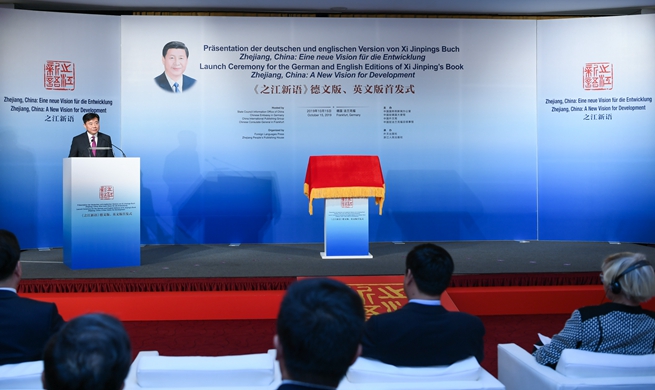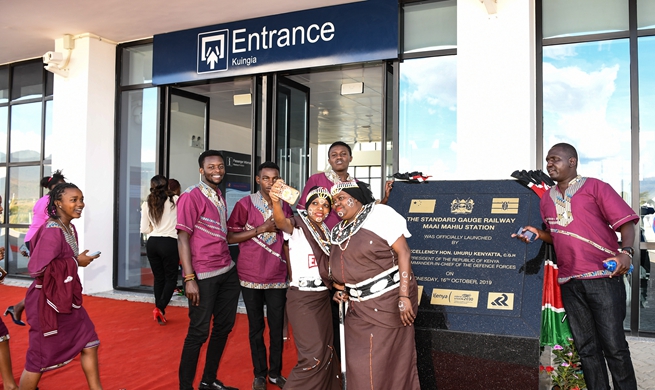TUNIS, Oct. 17 (Xinhua) -- Tunisian law professor-turned politician Kais Saied has largely won the latest presidential election due to widespread support by the country's youth, who hope to open a new political phase, analysts said.
Tunisia's Independent High Authority for Election (ISIE) on Thursday officially proclaimed Saied as Tunisia's new president, after winning the second round of presidential election with 72.71 percent of the vote, against his rival Nabil Karoui's 27.29 percent.
Saied, an academic in constitutional and international law, stunned everyone with the resounding victory. More surprisingly, about 90 percent of the young voters between the age of 18 and 25 voted for him, according to Sigma Conseil, a Tunisian survey company.
Analysts said that Saied basically bet on his people to turn a page tinged with partisan control, political quotas, corruption and mismanagement of state affairs, and open a new phase based on the will of the people.
Moncef Aouissaoui, a Tunisian analyst, said that young Tunisians have supported Saied from the beginning, especially those from the interior and border areas who suffer from poverty and marginalization.
Even better, according to the intellectual level of voters, 86.1 percent of those with a university degree voted for Saied.
Tarek Omrani, a columnist for the news portal of Tunisia Babnet, also agreed that the great mass of voters who have chosen Kais Saied are young.
"They took the decision to go out massively at the polls last Sunday to support him," Omrani said.
Mohamed Kacimi, an analyst at Business News magazine, said "we must go back a bit to understand the results of this election."
"In June, discovering that the media mogul Nabil Karoui was leading the polls, Prime Minister Youssef Chahed wanted the electoral law to be amended to bar the road for all opponents to Carthage, referring to the presidency," Kacimi added.
Thus, many politicians qualified by Tunisians as "undesirables" were on the list of candidates running for the first round of election on Sept. 15.
However, the polls left only two atypical candidates, namely Nabil Karoui and Kais Saied, commented Kacimi.
For Aouissaoui, what perhaps made the difference was the way Saied ran his election campaign, which was based on low self-financing and visits to various provinces and communes.
This "earned him the respect and support of a large majority of the people who see him the president of the Republic but also that of the people," said Aouissaoui.
Saied excelled by his credibility through his speech addressed to the Tunisian people and his concern to reinstate power to the people.
Aouissaoui said that Saied kept repeating that the power must be inspired by aspirations and needs of the people, calling for rebuilding the political and administrative system from local to central levels.
"The closeness of the citizen and his reliance on his own funding during his election campaign have made Saied the closest candidate to all Tunisians and the most different candidate by his ideas, his program and his way of solving problems and designing programs where the citizen is the epicenter," Aouissaoui added.
Once officially informed by the ISIE of the final result, the Assembly of People's Representatives will hold a session for the new president to take the oath.
The deadline for the inauguration of Saied as president is set for Oct. 25 under the Constitution of 2014 which grants a 90-day deadline for electing a successor in case of death of the president.

